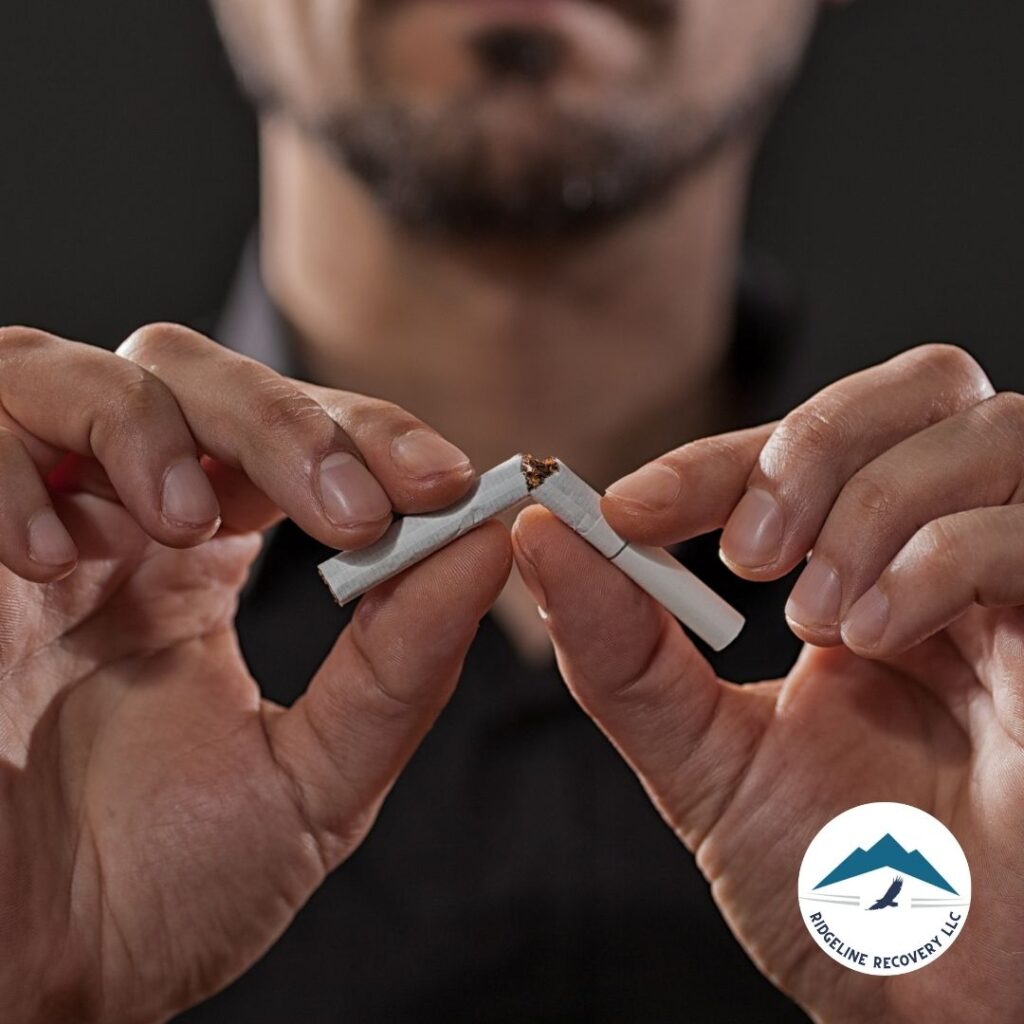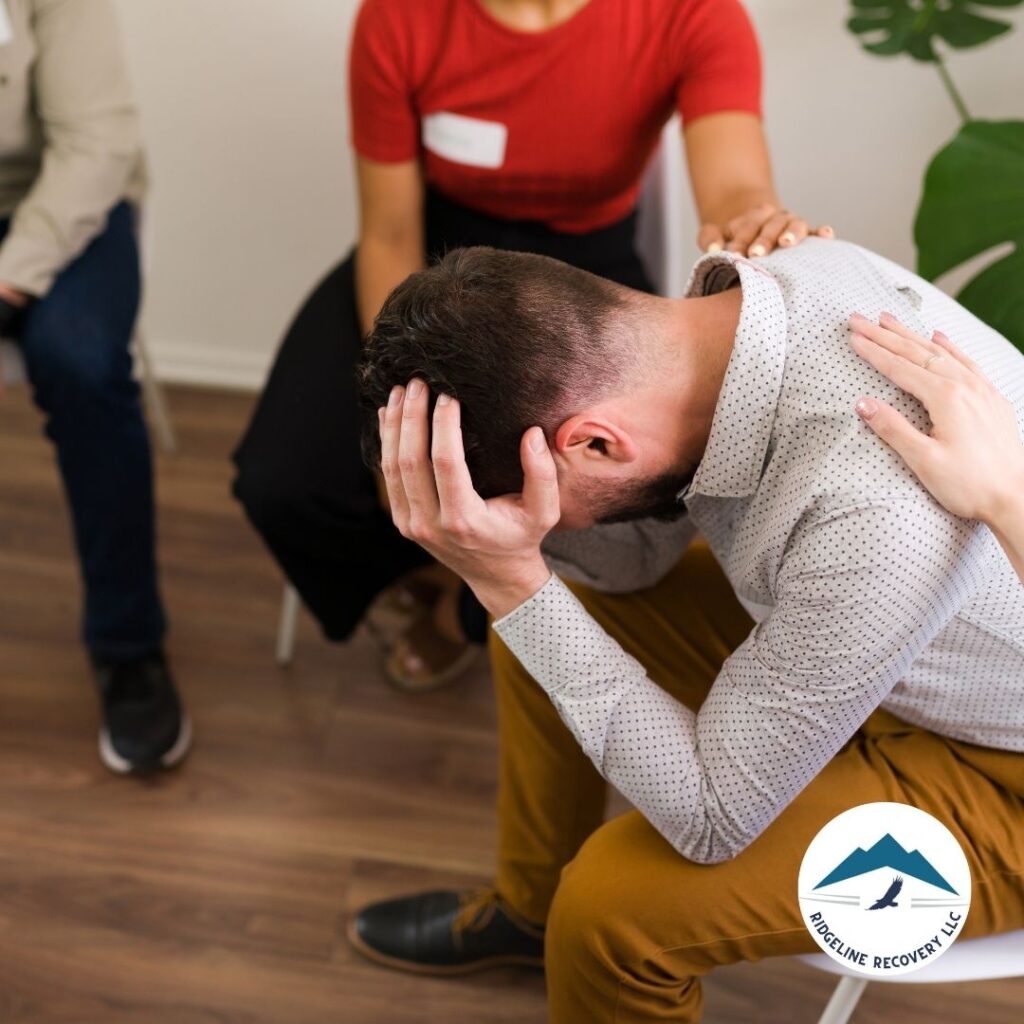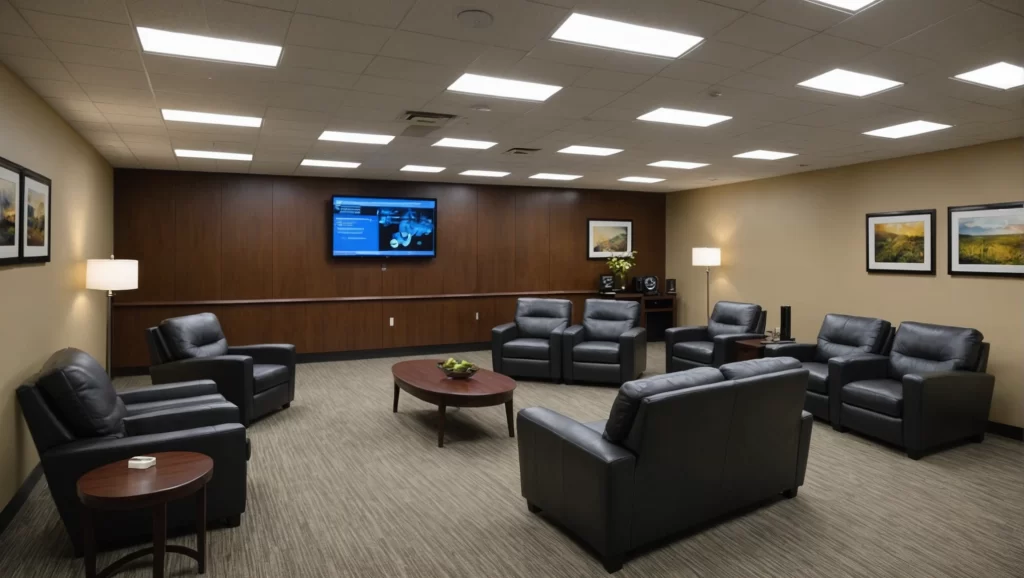Addiction Recovery Columbus? Let’s talk about the elephant in the room here.
You’re looking for help, maybe for yourself, maybe for someone you love, but either way, the goal is crystal clear: lasting sobriety.
But here’s the thing — not all Addiction Recovery Columbus options are built the same.
Some people need a quick detox, others need a full overhaul of their lives. And, a lot of the time, it’s more than just substance use — it’s mental health, personal habits, and even relationships that all need a serious look. If you want results that stick, it’s about finding the right tools and the right people, not just a “program.”
If you’re in Columbus and you’re ready to start a recovery journey that actually lasts, then we need to talk about why personalized addiction therapy matters, what you can expect, and the specific steps to get there.
Why Personalized Therapy Makes All the Difference
Let’s get one thing straight.
Addiction isn’t one-size-fits-all. So why would recovery be?
Some people are dealing with serious chemical dependencies — the kind where you can’t “just stop” without serious help. Others may be struggling with mental health issues in addition to substance use. This is where personalized addiction recovery comes in.
In Addiction Recovery Columbus, having access to addiction therapy near me can make all the difference, especially when it includes therapy options tailored to your life. Personalized treatment looks at everything — mental health, family history, daily habits, even things like work stress or social triggers. The right program addresses all of it.
Components of Effective Addiction Recovery in Columbus
When it comes to effective addiction treatment, there are several key components that Ridgeline Recovery and other leading rehab programs in Columbus focus on:
1. Detox Programs
The first step to any successful recovery? Getting substances out of your system safely. The best way to detox from alcohol or drugs depends on your level of dependence, mental health, and physical health. That’s why finding detox alcohol near me that’s both safe and supportive is critical.
The Ridgeline Recovery approach ensures medically supervised detox options, where staff are on hand to handle symptoms and ensure safety throughout the process. For some, this may include medical interventions to reduce withdrawal symptoms, especially in cases of dts alcohol withdrawal or opioid dependency.
2. Addiction Therapy Services
Addiction treatment isn’t just about detox — it’s about rewiring behaviors, facing trauma, and rebuilding life.
You’ve got options here: group of alcoholics support, one-on-one counseling, family therapy, and even holistic treatment near me options. Therapy sessions at Addiction Recovery Columbus centers involve proven strategies that tackle the root of addiction, not just the surface-level symptoms.
Common approaches include:
- Cognitive Behavioral Therapy (CBT): This targets negative thought patterns and behaviors, focusing on practical steps to change them.
- Motivational Interviewing (MI): Helps people find their own reasons and motivation for staying sober.
- Family Therapy: Addiction impacts everyone. Working through family issues and rebuilding trust can be key to long-term success.
3. Medication-Assisted Treatment (MAT)
For some people, medication can provide the support they need to overcome cravings and reduce relapse risk. Options like Vivitrol clinics near me help people manage intense opioid or alcohol cravings without the risks of dependency. These vivitrol clinics have been shown to significantly increase sobriety success when used alongside counseling and therapy.
Whether you’re looking for rehabs for alcohol, drug alcohol rehab, or residential rehab, a well-rounded treatment center in Columbus will consider MAT as one option in a bigger toolkit for recovery.
Addressing Mental Health in Addiction Recovery Columbus
A lot of the time, addiction is only half the story. The other half? Mental health.
In Columbus, finding a solid mental health clinic near me is essential for many people in recovery. Depression, anxiety, PTSD — these are often the underlying issues that fuel addiction. Ignoring them is like patching a leaking roof without fixing the hole.
- Mental Health Therapists: Qualified therapists can provide mental health help near me so people don’t feel like they’re battling these issues alone.
- Inpatient and Outpatient Mental Health Services: Access to both inpatient and outpatient mental health services can offer flexibility for individuals at different stages of recovery.
Choosing the Right Rehab Programs in Columbus

You’re not just choosing a rehab facility; you’re choosing a life-changing path. Columbus offers a variety of options, from in patient rehab to long term rehab programs, each designed for different needs. It’s about picking the right option for where you’re at, whether it’s a residential rehab alcohol inpatient program or outpatient services.
Cost Considerations: Is Rehab Affordable?
Let’s be honest — cost is a big factor. Rehab isn’t cheap, but it’s also an investment in the rest of your life. When comparing rehab cost, check if insurance covers any of it, what’s included in the program, and whether there’s flexibility in payment options. Programs like Ridgeline Recovery may work with Medical Mutual of Ohio or offer other payment options to help make recovery accessible.
Practical Tips for Making Sobriety Stick
You’re out of rehab. Now what?
1. Build a New Routine
Old habits lead to old results. If you’re serious about Addiction Recovery Columbus, you need to rebuild from the ground up. This means new routines, new habits, and cutting ties with people or places that encourage old behavior.
2. Find Your Support System
Support doesn’t end after rehab. Find support groups for families of addicts or join refuge recovery meetings to keep connected with people who understand what you’re going through. It’s like a maintenance plan for sobriety — the twelve step program is just one approach, but there are many out there that can help.
3. Prioritize Health and Wellness
Recovery isn’t just about avoiding substances — it’s about building a healthier, happier life. Find a mental health therapist near me for ongoing support, exercise regularly, and focus on good nutrition. The healthier you feel, the easier it is to stay on track.
Advanced Techniques for Addiction Recovery Columbus: Going Beyond Basics
Let’s dive deeper.
When it comes to Addiction Recovery Columbus, you’re not just looking for surface-level solutions. You’re here because you need something more — something that digs deep into the patterns, habits, and thoughts that drive addiction. And that’s exactly where Columbus’s best rehab treatment centers come in, addressing addiction with advanced, personalized techniques for people ready to make real changes.
1. Cognitive-Behavioral Techniques and Addressing Root Causes
Addiction is complex. It’s not just about detox; it’s about understanding why the cycle started and keeps going. Through techniques like Cognitive Behavioral Therapy (CBT), recovery experts in Columbus target the mental loops and triggers tied to addictive behaviors.
CBT asks the big questions:
- Why did this start?
- What triggers it now?
- How can we break the cycle?
By getting to the root, CBT focuses on tangible action steps to help people understand what’s driving them. This form of addiction therapy services helps individuals build confidence and accountability over time.
2. Medication-Assisted Treatment (MAT) and Safe Detox Options
For some people, medication becomes a tool that can reduce cravings, stabilize mood, and bring a sense of calm that makes recovery possible. Medication-Assisted Treatment (MAT) offers a bridge from dependency to freedom.
Some go-to MAT options:
- Vivitrol: A monthly injection that’s non-addictive and blocks opioid receptors. Vivitrol clinics are gaining popularity, offering a way to handle cravings without dependency.
- Gabapentin: Often seen on goodrx gabapentin lists, this medication can help with anxiety and withdrawal symptoms. Though not always necessary, it can be beneficial in specific cases.
When you find a vivitrol clinic near me, you’re looking at a program designed to remove that feeling of “I need it” while focusing on lasting change. Whether someone is considering detox alcohol near me or opioid detox, the importance of medically supervised detox can’t be overstated.
3. Exploring Long-Term Solutions: Holistic and Long-Term Rehab Options
Recovery doesn’t end after the first 30, 60, or even 90 days. Many find that it’s the work they do in long term rehab settings that truly sets the foundation for a sober life. Programs for long time effects of alcohol or drug use don’t just target the physical symptoms — they’re about mental and emotional healing too.
Some effective long-term options include:
- Residential Rehab: Programs designed to offer consistent support over months, providing a structured environment without external triggers.
- Holistic Treatment Near Me: Yoga, meditation, art therapy — these offer ways to reconnect with yourself and find peace without substances.
- Group of Alcoholics Programs: Surrounding yourself with like-minded people who’ve walked the path can keep the journey from feeling isolating.
These Columbus rehab facilities focus on long-term healing rather than quick fixes, which is crucial in the journey to Addiction Recovery Columbus.
Breaking Down the Specifics: Dealing with Common Triggers and Habits
A big part of recovery is learning to handle real-life situations that have previously led to substance use. Let’s take a closer look at some high-risk areas that are often overlooked.
1. Dating an Alcoholic and Navigating Relationships in Recovery
Relationships are tricky. If you’re dating someone who’s also in recovery or dealing with substance issues, this brings a unique set of challenges. Dating an alcoholic means understanding triggers and knowing what boundaries need to be in place.
In recovery, people are often encouraged to wait before starting new relationships. However, if someone’s already in a relationship, couples therapy or support groups for families of addicts can be invaluable. Addiction therapy near me sessions can help couples navigate these complex dynamics and establish healthier patterns that support sobriety.
2. Navigating Work-Life and Maintaining Sobriety
Returning to work can introduce stress that makes staying sober challenging. Balancing work and recovery is often tough, but it’s essential to put recovery first. Many Columbus facilities emphasize work-life balance as a cornerstone of Addiction Recovery Columbus, guiding individuals on how to keep sobriety a priority.
Here are some strategies to consider:
- Set boundaries: Don’t allow work stress to become a relapse trigger.
- Stay connected: Attend support groups for families of addicts or other recovery groups.
- Know your rights: Understanding benefits and support options, like medical mutual of Ohio customer service, can ensure you’re financially secure while focusing on your recovery.
3. Managing Medical Detox and Withdrawal
If you’re dealing with specific substances like opioids, benzodiazepines, or alcohol, withdrawal can be intense. Symptoms like dts alcohol withdrawal and lorazepam side effects withdrawal can feel insurmountable without the right support.
Medical detox at a qualified rehab drug and alcohol facility provides a safe space to get through these symptoms. Delirium tremens treatments for severe alcohol withdrawal, for instance, can literally be life-saving. Whether it’s rehab alcohol inpatient programs or outpatient detox, finding the right level of care is essential.
Building a Lifestyle That Supports Long-Term Sobriety
Addiction recovery is a lifestyle shift — not a temporary fix. Addiction Recovery Columbus centers are all about giving people the tools to create lives that support sobriety, not just avoid triggers.
1. Establishing a Healthy Routine
Replacing old habits with new, healthier ones is the backbone of recovery. Exercise, good nutrition, and regular sleep patterns can make an enormous difference in maintaining sobriety.
Here’s how to start:
- Daily Exercise: Physical health has a massive impact on mental well-being. Whether it’s a full workout or a daily walk, making movement a priority can help reduce stress and cravings.
- Nutrition: Eating a balanced diet can improve mood and reduce withdrawal symptoms, especially when dealing with the long time effects of alcohol or drugs.
- Mindfulness and Relaxation: Techniques like meditation, yoga, or breathing exercises can bring calm, helping people handle stress in healthier ways.
2. Community Support and Group Therapy Options
Staying connected to a community of people who understand the challenges of recovery is crucial. Whether it’s through narcotics anonymous twelve traditions or the twelve step program, staying accountable and connected to others in recovery can help prevent isolation.
Columbus offers a variety of group therapy options for rehabs for alcoholism and substance use, allowing people to find support at any stage of their journey.
3. Staying Prepared for Relapse
No one wants to talk about relapse, but it’s a reality in many recovery journeys. The difference between those who stay sober and those who don’t? A plan.
If cravings hit or you face a high-stress situation, have tools ready:
- Call a friend: Reaching out to someone who understands can bring immediate support.
- Attend a meeting: Join refuge recovery meetings or other group sessions if you’re feeling vulnerable.
- Practice healthy distractions: Art, music, or exercise can be powerful outlets when facing temptation.
FAQs on Personalized Addiction Recovery Columbus
Q: What does “personalized treatment” mean in addiction recovery?
A: It means therapy that looks at your specific needs, from mental health to physical health and personal history. Addiction Recovery Columbus programs, like Ridgeline Recovery, create a unique plan to fit your life.
Q: Can family participate in the treatment process?
A: Absolutely. Family therapy is often a critical component. Family members are encouraged to join counseling sessions, which can help rebuild trust and provide support.
Q: Are medications like Vivitrol safe for recovery?
A: Yes, when used under supervision. Vivitrol clinics near me provide medications that reduce cravings safely without dependency, supporting a stable recovery process.
Q: How can I make sure I don’t relapse after completing rehab?
A: The work continues after rehab. Join local support groups, stay in touch with your therapist, and rebuild your life around healthier habits.
Q: What’s the difference between inpatient and outpatient programs?
A: Inpatient rehab involves staying at a facility full-time, ideal for those needing 24/7 support. Outpatient rehab lets people live at home while attending therapy sessions, providing flexibility while staying connected to treatment.

How Addiction Recovery Columbus Focuses on Personalized Solutions for Lasting Sobriety
In Addiction Recovery Columbus, the focus is on creating a lifestyle that supports sobriety — it’s not just about “getting clean” but about transforming your life so you no longer feel tied to substances. And to do that, a personalized approach becomes essential. You’re not just another case or number; recovery in Columbus is about meeting you where you’re at and building from there.
Why a Personalized Approach Matters
Think about it this way: if addiction were just about removing substances from the body, then every detox would be a “cure.” But in reality, detox is only a part of the process. That’s why Columbus recovery centers prioritize holistic treatment that digs deeper into root causes, triggers, and specific patterns.
Here’s what that can look like in practice:
- Trauma-focused therapy: Many people battling addiction have faced trauma. Addressing this isn’t just helpful; it’s often crucial.
- Mental health integration: Many patients have co-occurring disorders — mental health help near me is often needed to treat depression, anxiety, or other mental health conditions alongside addiction.
- Lifestyle coaching and family therapy: Addiction doesn’t exist in isolation. Many recovery programs in Columbus include coaching for family dynamics, work-life balance, and even reintegration into the workplace.
Understanding the Role of Support Systems: Building a Lasting Community in Recovery
One of the key differences between temporary and lasting recovery often comes down to community support. People who build strong support networks have better outcomes because they feel accountable and connected.
Support groups for families of addicts can be incredibly helpful for those navigating recovery. Whether through refuge recovery meetings, the twelve step program, or group of alcoholics meetings, finding and committing to a support network is one of the most effective tools in staying sober.
Different Types of Support Groups Available
Columbus has a variety of support group options tailored to different needs:
- Narcotics Anonymous Twelve Traditions: A fellowship that provides steps to follow in recovery, focusing on accountability and shared experience.
- Refuge Recovery: A non-12-step approach that integrates mindfulness and meditation, perfect for those looking for holistic support.
- Support groups for families of addicts: For the loved ones, recovery can feel just as challenging. These groups provide a safe space to learn, understand, and cope together.
Whether you’re just starting out or have been in recovery for years, these Columbus-based support networks give you a space to share, learn, and build relationships that keep you grounded.
Therapy Techniques for Addiction Recovery Columbus: In-Depth Look at Proven Methods
Addiction recovery in Columbus employs a range of therapy techniques — from traditional to innovative. Let’s dive into some of the therapies that are changing lives.
Cognitive Behavioral Therapy (CBT) for Addiction
CBT remains a powerhouse in recovery therapy. It’s effective because it gives you tools to recognize and change thinking patterns that lead to substance use.
How CBT can help:
- Identifying triggers: If certain people or places make you want to use, CBT can help you identify them and respond in healthier ways.
- Replacing unhealthy habits: The beauty of CBT is that it’s action-focused. Instead of falling back on addiction, you learn healthier ways to deal with stress and challenges.
- Accountability and self-assessment: CBT encourages self-awareness and responsibility, which are key in long-term sobriety.
Dialectical Behavior Therapy (DBT) and Emotional Regulation
Unlike CBT, which focuses primarily on thoughts and actions, Dialectical Behavior Therapy (DBT) zeroes in on emotional regulation and handling distress. This therapy is especially helpful for those with intense emotional responses or people dealing with trauma.
In Addiction Recovery Columbus, DBT is used for:
- Managing high-stress situations: Techniques for calming down before reacting impulsively.
- Building emotional resilience: Recovery is often an emotional rollercoaster, and DBT gives you the tools to handle it.
- Creating a life you love: DBT isn’t just about recovery; it’s about crafting a fulfilling, enjoyable life.
Medical Options in Recovery: From Detox to Vivitrol Clinics
Medical assistance can be the difference between success and struggle. While not everyone needs medications, they’re an important option to consider if cravings or withdrawal symptoms become overwhelming.
Vivitrol Clinics in Columbus
One effective option for both opioid and alcohol addiction is Vivitrol. It’s a non-addictive, once-a-month injection that blocks the euphoric effects of opioids or alcohol, helping people stay sober. Many people search for a Vivitrol clinic near me to get that monthly help without the worry of dependency.
The benefits of Vivitrol include:
- Reduction in cravings: For those with intense cravings, Vivitrol can make early recovery easier.
- Non-habit-forming: Unlike some treatments, Vivitrol doesn’t come with a risk of dependency.
- Long-lasting effect: Since it’s a monthly injection, it’s convenient and doesn’t require daily doses.
For anyone considering medication-assisted treatment, a vivitrol clinics near me search can lead to great options that provide support without replacing one dependency with another.
The Detox Process: What You Need to Know
Detox isn’t glamorous, but it’s necessary. For many, the initial detox process is the hardest part of recovery, especially when dealing with alcohol or opiate withdrawals. Detox alcohol near me programs in Columbus provide safe environments to handle withdrawal with medical supervision.
Here’s what detox looks like in Columbus:
- Inpatient detox: For severe cases, inpatient treatment centers offer 24/7 monitoring and support.
- Outpatient detox: This option allows people to detox at home while checking in with medical staff regularly.
- Detox medications: Medications like goodrx gabapentin or others are sometimes used to ease symptoms.
Whether you’re dealing with dts alcohol withdrawal or withdrawal from opioids, Columbus has facilities equipped to help people safely detox and transition into therapy.
Addiction and Mental Health: Dual Diagnosis and Co-Occurring Disorders
Many people in recovery also battle mental health challenges. In Columbus, many recovery programs integrate mental health services to ensure people have the support they need to thrive mentally and emotionally.
Why Mental Health Integration is Essential
If addiction is only treated physically, it leaves a lot of loose ends. That’s why mental health treatment centers near me are often part of the recovery journey for people battling anxiety, depression, PTSD, or other conditions.
Mental health support in addiction recovery looks like:
- Therapist partnerships: Programs often connect patients with mental health therapist near me options for ongoing support.
- Dual diagnosis programs: These programs are tailored for those who need simultaneous support for mental health and addiction.
- Customized therapy plans: Mental health issues vary; whether you need an inpatient rehab setup or outpatient services, Columbus has options for everyone.
Dealing with Unique Challenges in Recovery: From Dating to Workplace Reintegration
When it comes to recovery, life doesn’t stop. You’ll still face everyday challenges like dating, work, and family — but now, they’re seen through the lens of sobriety. Columbus’s recovery programs understand these unique challenges and help individuals develop strategies for navigating them.
Navigating Relationships and Dating in Recovery
One of the hardest parts of recovery is learning to be in relationships without old habits creeping in. Dating an alcoholic or maintaining a relationship in recovery can be challenging, but it’s doable.
Here are some relationship strategies for sobriety:
- Healthy boundaries: Know your limits and communicate them openly.
- Supportive partners: Choose partners who understand your journey and respect it.
- Communication: Openness about your journey can prevent misunderstandings and help you stay accountable.
Reintegration into Work: Putting Recovery First
Returning to work can be both exciting and nerve-wracking. In Addiction Recovery Columbus, programs are designed to help individuals transition smoothly back into the workforce while keeping sobriety at the forefront.
Key strategies include:
- Clear boundaries: Don’t let work stress lead you back to old patterns.
- Knowing your rights: Programs like medical mutual of Ohio customer service can help you understand your health coverage options.
- Ongoing support: Whether it’s a quick check-in with a counselor or group meetings, keeping recovery central to your life makes the transition back to work easier.
FAQs on Addiction Recovery Columbus: All Your Questions Answered (Part 2)
Q: What should I expect from an addiction recovery program in Columbus?
A: Expect a combination of detox, therapy, and community support designed to help you maintain sobriety for the long term.
Q: Can addiction therapy help with mental health?
A: Yes, many Columbus recovery centers offer integrated programs that treat both addiction and mental health challenges like anxiety or depression.
Q: How long does rehab last?
A: Rehab length depends on the individual. Some programs last 30 days, while long term rehab options may span several months.
Q: What’s the difference between inpatient and outpatient rehab?
A: Inpatient rehab requires full-time residence in a facility, while outpatient rehab allows patients to live at home while attending treatment sessions.
Addiction Recovery Columbus isn’t just a location or a program. It’s a decision to start living a life of freedom, backed by a team who gets it and stands by you.
Whether you’re just starting out, looking for mental health services, or ready to dive into recovery, there’s a program, a support group, and a life waiting for you in Columbus.
Ridgeline Recovery LLC is here to help — not just today, but every day you need us.

Call Us Now!
If you or a loved one is struggling with heroin or alcohol dependency, reach out to Ridgeline Recovery Center in Columbus, Ohio, today. At Ridgeline Recovery, we offer a path to hope and healing. Our comprehensive Addiction Recovery services include Addiction Therapy, Addiction Treatment, Vivitrol Clinic and specialized Mental Health Services designed to support your journey to recovery.
We provide Aftercare Programs and Peer Support to ensure you have ongoing assistance after treatment. Our dedicated team offers Case Management and Child Services for those needing extra support. For individuals who prefer a faith-based approach, we offer Faith-Based Recovery options.
Our programs feature Group and Individual Counseling, along with Medication-Assisted Treatment (MAT) to address your unique needs. We also have an Intensive Outpatient Program (IOP) and a Partial Hospitalization Program (PHP) for more structured care.
Our team includes Registered Nurse Services, Psychiatric Services, and Therapeutic Behavioral Services (TBS) to provide comprehensive support throughout your recovery process. We work with various Insurance Coverage plans to help you access the care you need.
Don’t wait—contact us now to start your journey toward a brighter future with Ridgeline Recovery.
For more stories and information Contact Us, visit our Blog page and Stories & Highlights.



